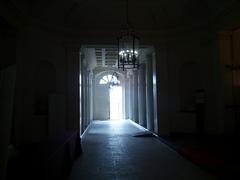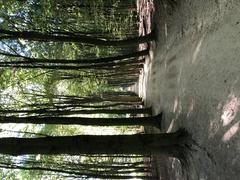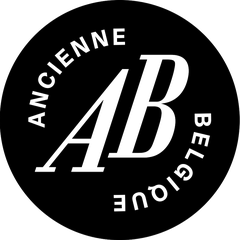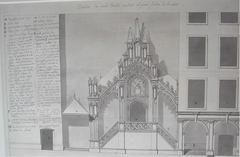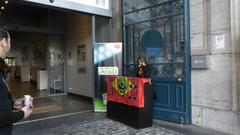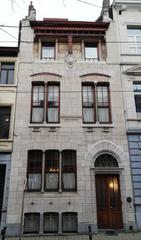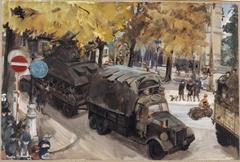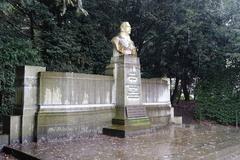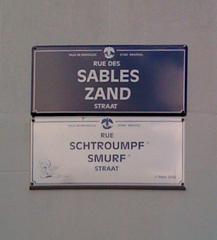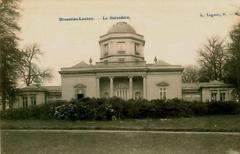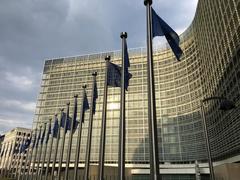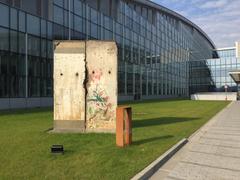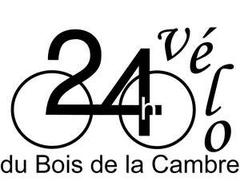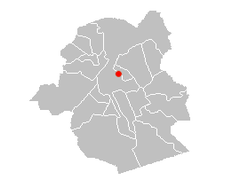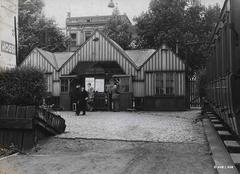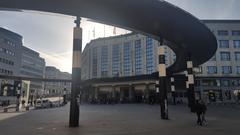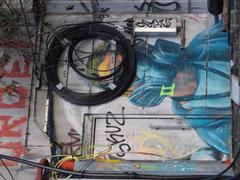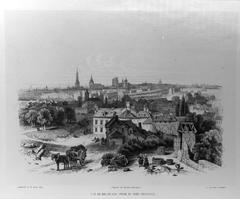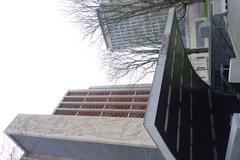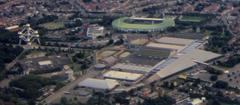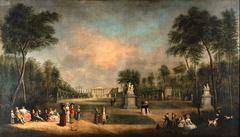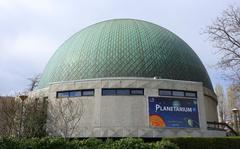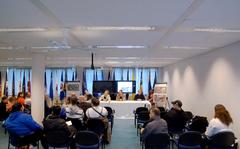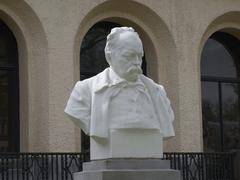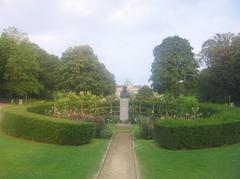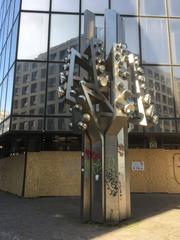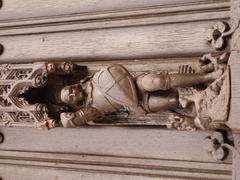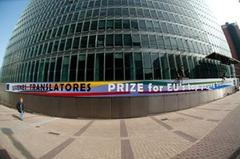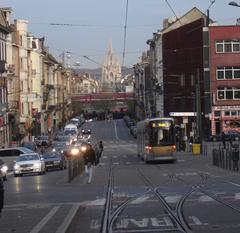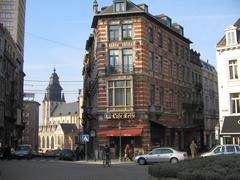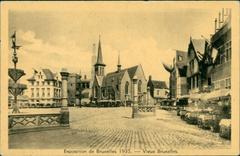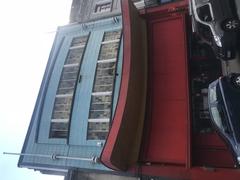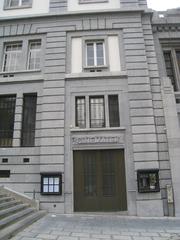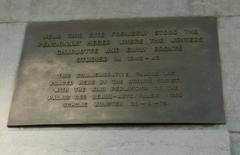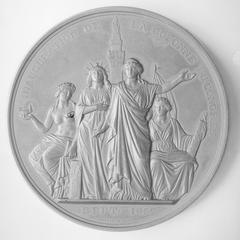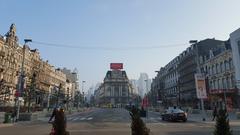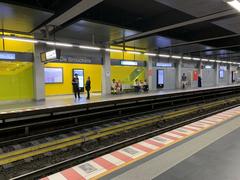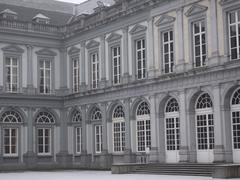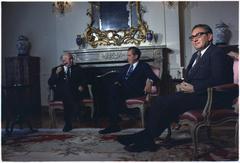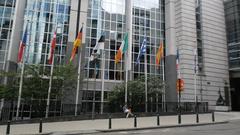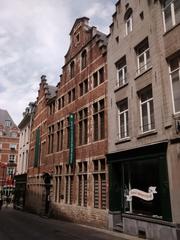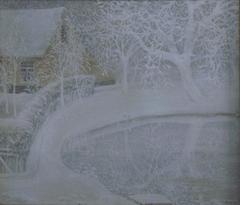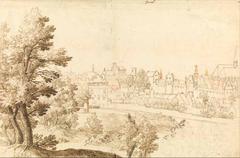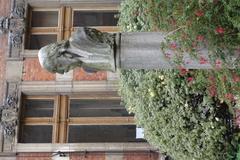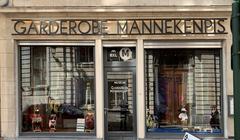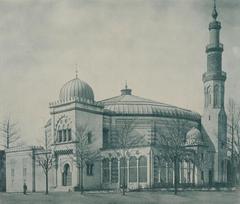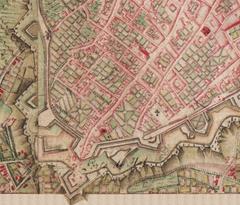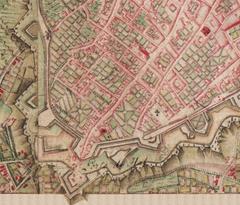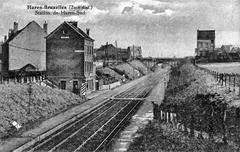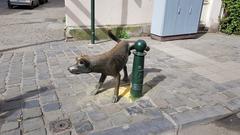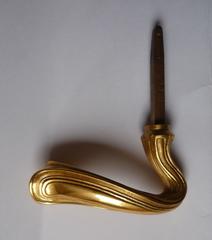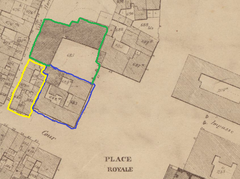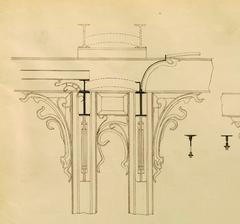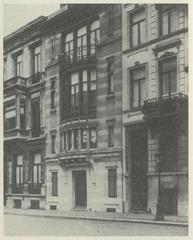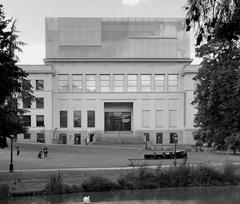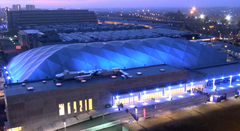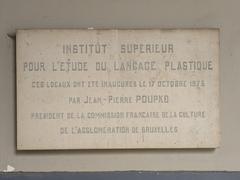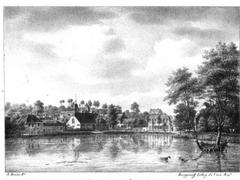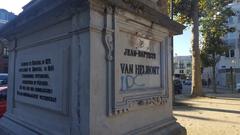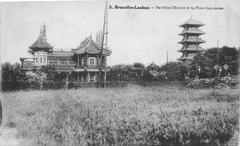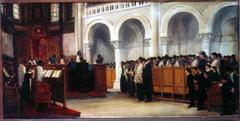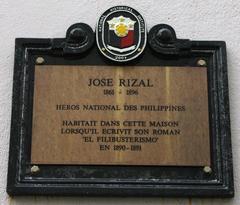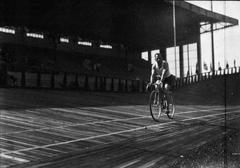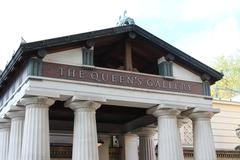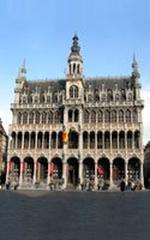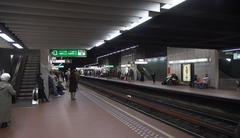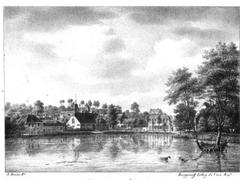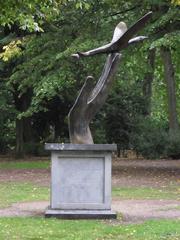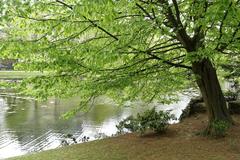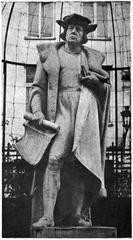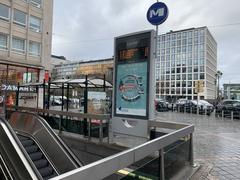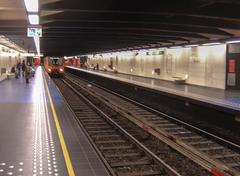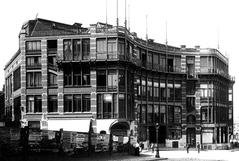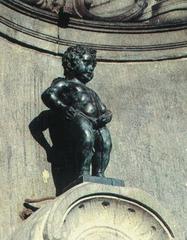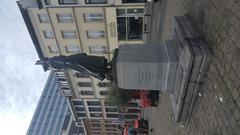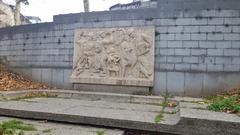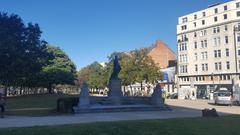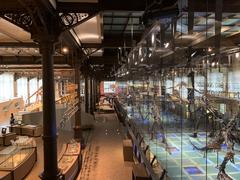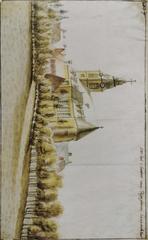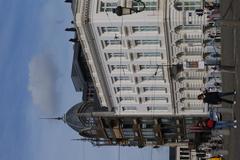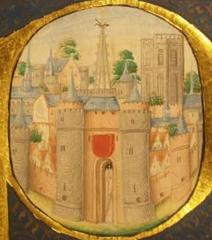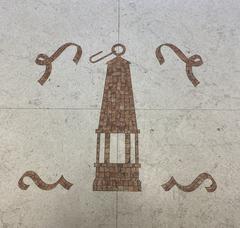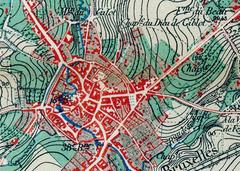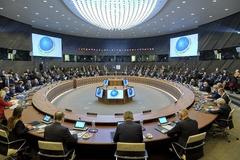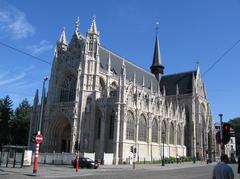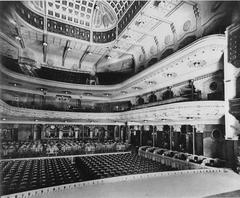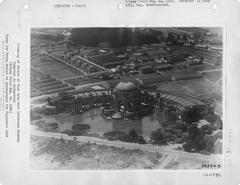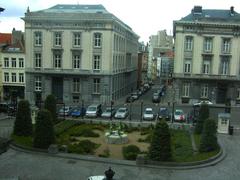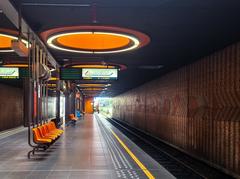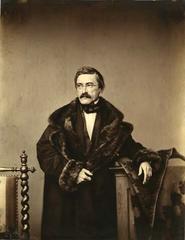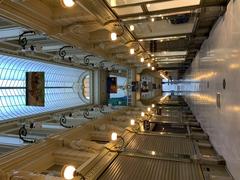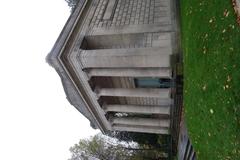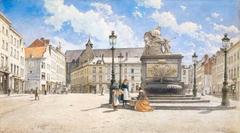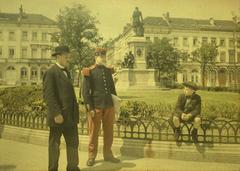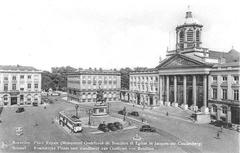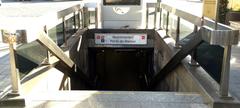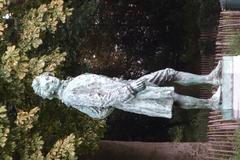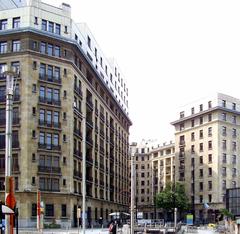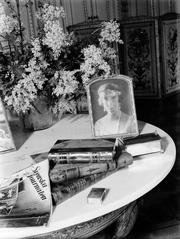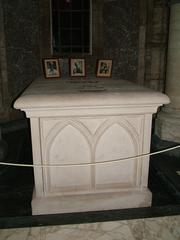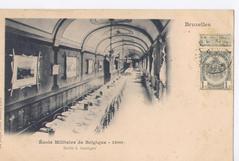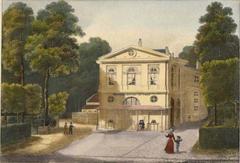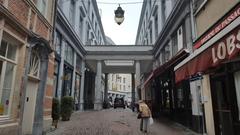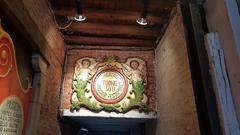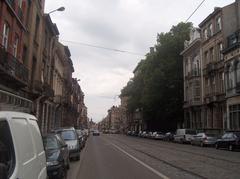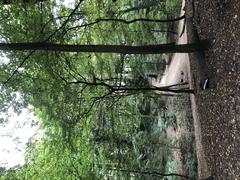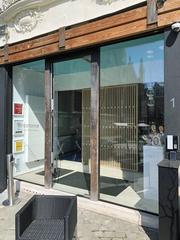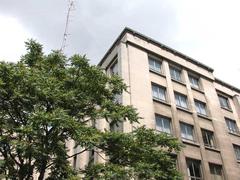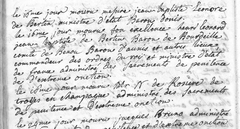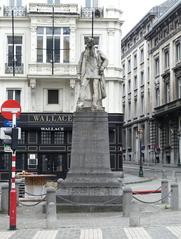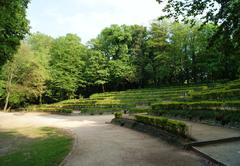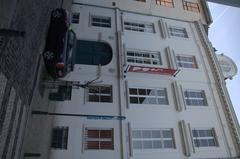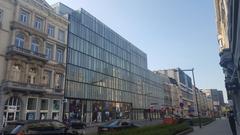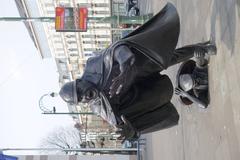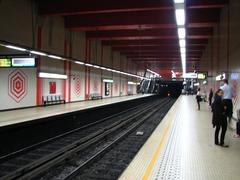Kanal Centre Pompidou Brussels: Complete Guide to Visiting Hours, Tickets, and Historical Insights
Date: 14/06/2025
Kanal - Centre Pompidou in Brussels stands as a beacon of cultural transformation, expertly weaving together the city’s industrial heritage with contemporary art and social innovation. Housed in the iconic former Citroën Yser factory, this ambitious project is redefining Brussels’ cultural landscape, offering expansive exhibition spaces, public amenities, and a diverse range of programming. Whether you’re planning a future visit to the grand reopening or exploring current exhibitions at the K1 temporary venue, this guide delivers everything you need: practical visitor information, historical context, ticketing details, and tips to make the most of your experience at one of Europe’s most forward-thinking museums (kanal.brussels, sergisonbates.com, archdaily.com).
Table of Contents
- Introduction & Overview
- Historical Background: From Citroën Factory to Culture Factory
- Architecture and Vision
- Urban Integration & European Significance
- Practical Visitor Information
- Museum Experience: Exhibitions, Events & Community
- Plan Your Visit: Tips & Nearby Attractions
- FAQ
- Explore More & Stay Connected
- References
Introduction & Overview
Kanal - Centre Pompidou is Brussels’ flagship for cultural renewal, embodying the city’s commitment to preserving its industrial heritage while fostering creativity and inclusivity. Located in the revitalized canal district, the museum is the product of a visionary partnership with Paris’ Centre Pompidou, ensuring access to world-class collections and innovative programming. The transformation of the Citroën Yser factory into a vibrant “urban culture factory” reflects the spirit of Radical Optimism, balancing preservation with forward-thinking design and community engagement.
Historical Background: From Citroën Factory to Culture Factory
The Citroën Yser Factory
Erected between 1933 and 1935, the Citroën Yser factory was a marvel of Art Deco industrial architecture, conceived by Alexis Dumont, Marcel Van Goethem, and Maurice-Jacques Ravazé. Its glass-fronted, steel-and-concrete structure symbolized the technological optimism of the era and became a landmark along the Charleroi-Brussels Canal (kanal.brussels). For decades, the building stood as a testament to Brussels’ industrial prowess—its 21-meter-high showroom earning the moniker “cathedral for cars.”
Transformation and Renewal
In 2015, the Brussels-Capital Region purchased the site to safeguard its heritage and cultivate a new cultural epicenter. The international architectural team—Atelier Kanal (noAarchitecten, EM2N, Sergison Bates)—won the competition to repurpose the building, preserving its industrial grandeur while introducing adaptable spaces for art, architecture, performance, and social events. This transformation marks not only an architectural feat but also a cultural renaissance for the canal district (sergisonbates.com).
Architecture and Vision
The architectural philosophy guiding Kanal is rooted in “Radical Optimism”—a commitment to critical engagement with the site’s history and urban context. The design approach employs a “light touch,” retaining much of the original structure—concrete frames, steel trusses, industrial finishes—while adding new layers of function (archdaily.com). The vast, interconnected galleries and public spaces foster openness, visibility, and participation. The iconic glass showroom remains a visual anchor, offering transparency between the museum and the city.
Key features include:
- Over 40,000 m² of exhibition space
- A 400-seat auditorium
- Workshops, educational rooms, and flexible event areas
- Integration with the CIVA Foundation, expanding the focus to urbanism and landscape architecture
- Sustainable engineering upgrades for safety, accessibility, and environmental responsibility (burohappold.com)
Urban Integration & European Significance
Kanal’s strategic location on the canal connects the revitalized site with Brussels’ commercial and industrial history while contributing to the district’s regeneration. The project’s open, permeable design encourages movement between the museum, neighboring venues like Kaaitheater, and the broader quartier, forging a vibrant cultural corridor (kanal.brussels).
As one of the largest cultural projects in Europe, Kanal is set to become a prototype for 21st-century museums—blending art, architecture, education, and civic engagement. Its partnership with Centre Pompidou places it within a network of leading contemporary art institutions, while its programming reflects Brussels’ diversity and international outlook (sergisonbates.com).
Practical Visitor Information
Opening Hours
Main Site (from 28 November 2026):
- Tuesday to Sunday: 10:00 AM – 6:00 PM
- Closed Mondays (except public holidays)
- Extended hours for special events (typically Thursdays until 9:00 PM)
- Always check the official website for up-to-date schedules.
K1 Temporary Venue (until reopening):
- 1 Avenue du Port, 1000 Brussels
- Tuesday to Sunday: 11:00 AM – 6:00 PM
- Closed Mondays (kanal.brussels)
Tickets & Admission
- Standard adult: €15 (K1: €10)
- Reduced (students, seniors, under 26): €10
- Free for children under 12
- Family and group packages available
- Advance online booking recommended via kanal.brussels
- Special rates for Brussels residents and partner institution members (details TBA at reopening)
Getting There
- Metro: Lines 2 & 6 to Yser/IJzer station; lines 1 & 5 to Sainte-Catherine
- Tram/Bus: Multiple lines serve the canal district
- Car: Limited parking in nearby garages
- Bike: Dedicated racks on site
- Walking: Accessible from city center and canal-side promenades (visit.brussels)
Accessibility
Kanal is fully accessible, with step-free entrances, elevators, accessible restrooms, and clear multilingual signage. Assistance dogs are welcome, and staff are trained to support visitors with special needs (architecture.urban.brussels).
Facilities & Amenities
- Café, restaurant, bakery, and rooftop bar
- Cloakroom and lockers
- Free Wi-Fi
- Museum shop
- Family-friendly spaces and baby-changing stations
- Multilingual guided tours and workshops
Museum Experience: Exhibitions, Events & Community
Exhibitions
The museum will feature three major semi-permanent exhibitions (15–16 months each) and up to seven temporary exhibitions annually, drawing from the Centre Pompidou’s world-class collection and local artistic collaborations. The focus is on visual arts, architecture, design, and participatory installations (kanal.brussels).
Events & Educational Programming
- Film screenings, dance, performance, and debates
- Thematic guided tours and workshops for all ages
- Community-driven programs addressing urban change, diversity, and social justice
- Multilingual mediation and interpretive tools
Current Pre-Opening Programming at K1
- Trouble Festival 2025: Celebrates performance art from diverse regions
- AFIELD Forum: Explores the role of art in transitional justice
- Regular workshops and family events (kanal.brussels/events)
Plan Your Visit: Tips & Nearby Attractions
Tips
- Book tickets online in advance, especially for the opening phase
- Check the event calendar for special exhibitions and late openings
- Visit on weekday mornings for a quieter experience
- Allow 2–3 hours for a full visit, more if attending performances or dining
- Photography is allowed in most areas (no flash/tripods); always check signage
Nearby Attractions
- Kaaitheater: Contemporary performing arts
- LaVallée: Creative studios and exhibitions
- MigratieMuseumMigration: Stories of Brussels’ diverse communities
- Place Sainte-Catherine: Cafés and seasonal events
- Explore the canal district’s street art, markets, and trendy cafés
FAQ
Q: When does Kanal - Centre Pompidou open to the public?
A: The main site reopens on 28 November 2026, with ongoing exhibitions at K1 in the interim.
Q: Where can I buy tickets?
A: Online at kanal.brussels or on-site.
Q: Is the museum accessible for people with reduced mobility?
A: Yes, with step-free access, elevators, accessible restrooms, and assistance.
Q: Are guided tours available?
A: Yes, multilingual guided tours and workshops are offered; advance booking recommended.
Q: Can I take photos inside the museum?
A: Non-flash photography is generally permitted; check for restrictions per exhibition.
Q: What languages are services available in?
A: French, Dutch, and English.
Explore More & Stay Connected
- Kanal Centre Pompidou Official Site
- Visit Brussels - The Canal District
- Virtual Tour
- Contact & Visitor Info
- For questions: [email protected] | +32 (0)2 513 89 40
Follow Kanal on social media for updates and special content. Download the Audiala app for audio guides and up-to-date visitor information.
References
- Kanal Centre Pompidou Brussels: Visiting Hours, Tickets, and Cultural Highlights (kanal.brussels)
- Transformation of Industrial Heritage, Architectural Vision and Design Philosophy (sergisonbates.com)
- Former Citroën Factory to be Converted into Brussels Centre Pompidou (archdaily.com)
- Kanal Centre Pompidou – Engineering Consultancy (burohappold.com)
- Museum Experience and Programming (kanal.brussels)
- Visitor Information and Practical Tips (visit.brussels)
- Kanal Will Open 28 November 2026 (bruzz.be)
- The Canal: An Industrial District Reborn (visit.brussels)
Kanal - Centre Pompidou is more than a museum—it’s a living cultural ecosystem, bridging Brussels’ storied past with its innovative future. Plan your visit, stay connected, and be part of Brussels’ cultural renaissance.

